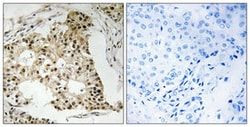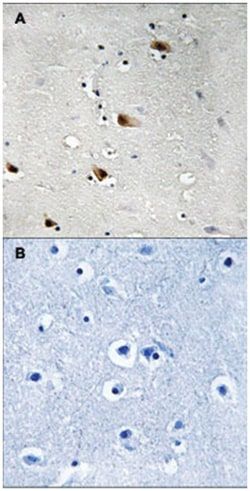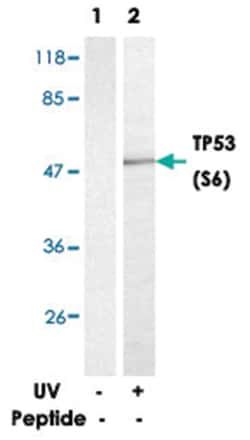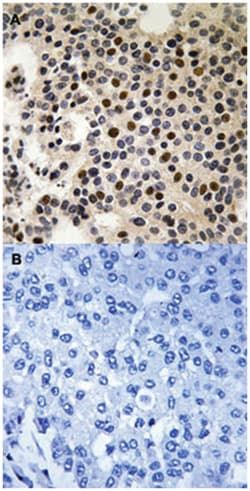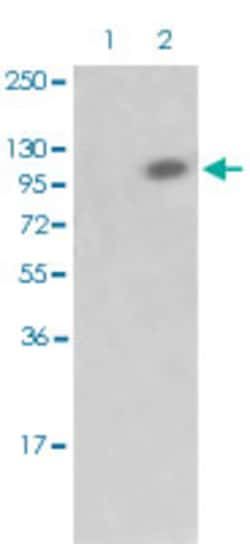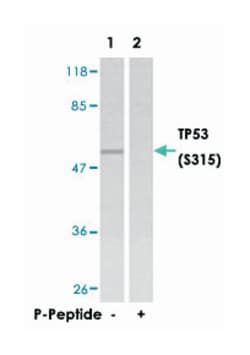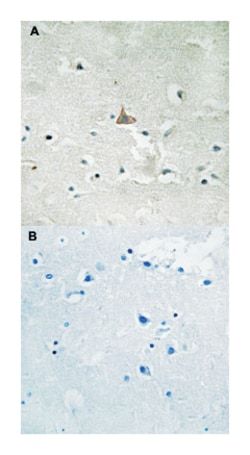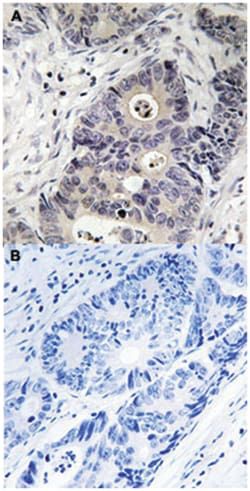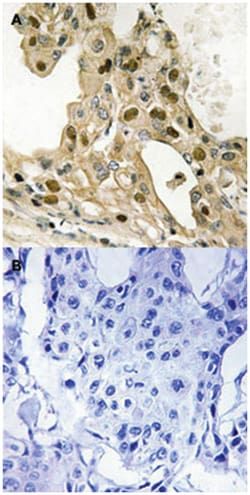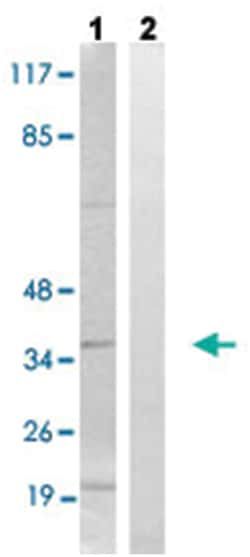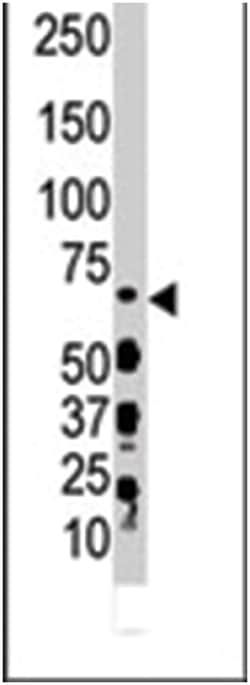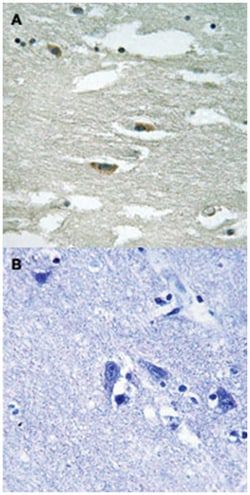TP53 (phospho T387), Rabbit anti-Human, Polyclonal Antibody, Abnova™
Manufacturer: Abnova Corporation
Select a Size
| Pack Size | SKU | Availability | Price |
|---|---|---|---|
| Each of 1 | 89-130-729-Each-of-1 | In Stock | ₹ 57,138.00 |
89-130-729 - Each of 1
In Stock
Quantity
1
Base Price: ₹ 57,138.00
GST (18%): ₹ 10,284.84
Total Price: ₹ 67,422.84
Antigen
TP53
Classification
Polyclonal
Description
Rabbit polyclonal antibody raised against synthetic phosphopeptide of human TP53.
Formulation
In PBS (without Mg2+and Ca2+), 150mM NaCl, pH 7.4 (50% glycerol, 0.02% sodium azide)
Gene Alias
FLJ92943/LFS1/TRP53/p53
Host Species
Rabbit
Purification Method
Affinity Chromatography
Regulatory Status
RUO
Gene ID (Entrez)
7157
Target Species
Human, Mouse, Rat
Form
Liquid
Applications
Immunohistochemistry (PFA fixed)
Conjugate
Unconjugated
Dilution
Immunohistochemistry (1:50∼1:100) The optimal working dilution should be determined by the end user.
Gene
TP53
Gene Symbols
TP53
Immunogen
Synthetic phosphopeptide (conjugated with KLH) corresponding to residues surrounding T387 of human TP53.
Quantity
100 μL
Primary or Secondary
Primary
Test Specificity
TP53 (phospho T387) polyclonal antibody detects endogenous levels of human TP53 only when phosphorylated at threonine 387.
Content And Storage
Store at -20°C.Aliquot to avoid repeated freezing and thawing.
Description
- This gene encodes tumor protein p53, which responds to diverse cellular stresses to regulate target genes that induce cell cycle arrest, apoptosis, senescence, DNA repair, or changes in metabolism
- p53 protein is expressed at low level in normal cells and at a high level in a variety of transformed cell lines, where it's believed to contribute to transformation and malignancy
- p53 is a DNA-binding protein containing transcription activation, DNA-binding, and oligomerization domains
- It is postulated to bind to a p53-binding site and activate expression of downstream genes that inhibit growth and/or invasion, and thus function as a tumor suppressor
- Mutants of p53 that frequently occur in a number of different human cancers fail to bind the consensus DNA binding site, and hence cause the loss of tumor suppressor activity
- Alterations of this gene occur not only as somatic mutations in human malignancies, but also as germline mutations in some cancer-prone families with Li-Fraumeni syndrome
- Multiple p53 variants due to alternative promoters and multiple alternative splicing have been found
- These variants encode distinct isoforms, which can regulate p53 transcriptional activity
- [provided by RefSeq]
